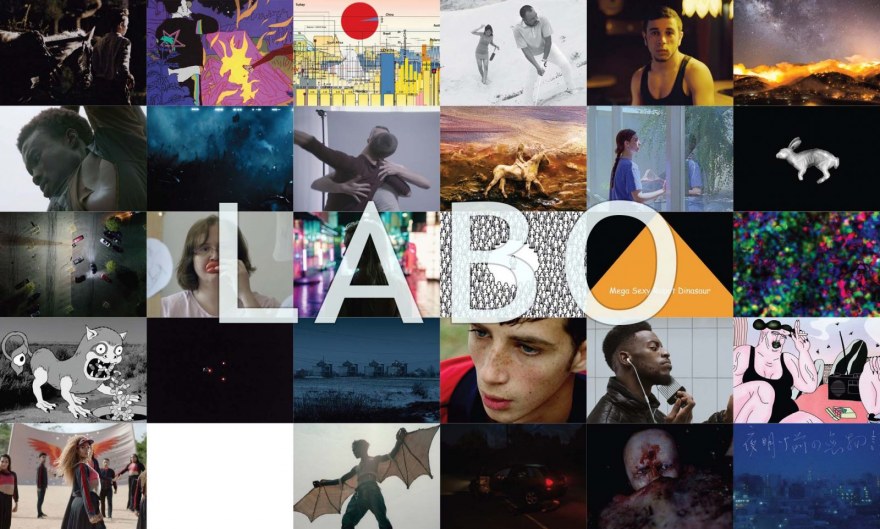Editorial – 2020 Lab competition
Militant dances permeate the 2020 Lab Competition: against totalitarianism, racial discrimination and gender inequality.
At the end of the 20th century, Michel Foucault tied the question of the body to that of power and institutions. He brought to light numerous tactics aimed at controlling bodies by dispersing them and locking them down in space and time. Bodies policed by a body police as it were. But now, with little regard for custom, some artists go against these facts while at the same time imperiling the diktats of the established order. Consequently, nothing seems as political as dancing bodies… The dancers of Swinguerra, in Recife, in a Brazil run by Bolsonaro’s extreme right-wing, perfectly illustrate this through Barbara Wagner and Benjamin de Burca‘s dazzling direction. Protest, resistance, the opposing powers unleash their strength. Steeped in the sensory, the two artists who are no strangers to contemporary art (the Venice Biennial, 2019) offer audiences the opportunity to experience unique ways of being, of feeling and testing themselves. Imperceptibly, they allow an agile mind to breathe again, far from ultra-conservatism.
Zombies, directed by the aptly-named Baloji, which means “sorcerer” in Swahili, compounds the dogged will to freedom in a dystopian Kinshasa where the codes of the Malian photographer Malick Sidibé are evident. Sidibé was able to capture the vitality of Bamako’s youth in the 1960s. Dance is a weapon, and when joined to music, they become a vector for transforming the world.
Deep within the crowd, the same yearning for freedom is felt by the dancers of Cultes, a film by the artists’ collective (La) Horde that specializes in choreography. (La Comédie de Clermont put them on the bill in October 2019 and they took over management of Marseille’s Ballet national a few months ago.)
The body is celebrating and gloating, and the young protagonists of Acid Rain (by Tomek Popakul who returns to the Lab Competition after his first selection in 2014 with Ziegnort) gather in the forest to the sound of the same music but escape jubilation and participating in the high mass of consumerism. With his singular stroke – at once crude and colorful – and a narrative style that resembles the best graphic novels, the young filmmaker who hails from Poland (the country being honored this year with a rich retrospective) shows a rare maturity.
In the Competition’s other Polish film, the horse and rider in Duszyczka, flayed like an anatomical exhibit by Doctor Fragonard (the painter’s brother), cross a fantastical, frightening existence, dramatically recalling the horsemen of the Apocalypse. The agonizing world of Barbara Rupik, the filmmaker, is full of senseless preparations, grim decompositions, confusion between the nature of man and the nature of the night. These creatures illustrate the anxiety of our times through sickly beautiful frescoes.
Just as disturbing is the character in Tomorrow I Will Be Dirt, by the Englishman Robert Morgan (who continues the story begun in Jörg Buttgereit’s feature-length horror film Schramm) who seems obsessed with preserving his cohesiveness. It’s difficult for him to alter the masses of shapeless material that he savagely tries to model into a legitimate face and body. Morgan makes his film truly burn, following on the heals of Bobby Yeah (winner of our Special Jury Prize in 2012), and The Cat With Hands (part of the International Competition in 2002).
Our retinas are also going to disintegrate with the return of Thorsten Fleisch and his Mustererkenntnis to competition. In 2008 the Lab welcomed the visual explosion of Energie! (which can be found on the DVD 10 ans de labo, released by Potemkine and agnès b.). This film pushes the limits of retinal persistence in an intensely immersive experience. Not for anyone suffering from epilepsy.
Winner of the Lab Grand Prize for two straight years, Pang-Chuan Huang is now offers us his third film Yoakemae no koimonogatari which he co-directed with Chunni Lin (whose film Yen Yen was in competition in Clermont-Ferrand in 2015). The young Taiwanese artist is a former student at Tourcoing’s Le Fresnoy – National Studio of Contemporary Arts. He pursues a remarkable approach to documentaries, full of delicacy and subtle work on analogue images, which has become his signature.
This year, the filmmakers in the Lab Competition will surprise you with their inventive, imaginative abilities to disrupt the perceptible order of the world. After being around for nearly twenty years, the Lab remains a unique filter for retranscribing our era.
Key numbers
29 selected films
14 countries represented
10 animations
9 documentaries
6 live actions
4 experimental films
4 first films








